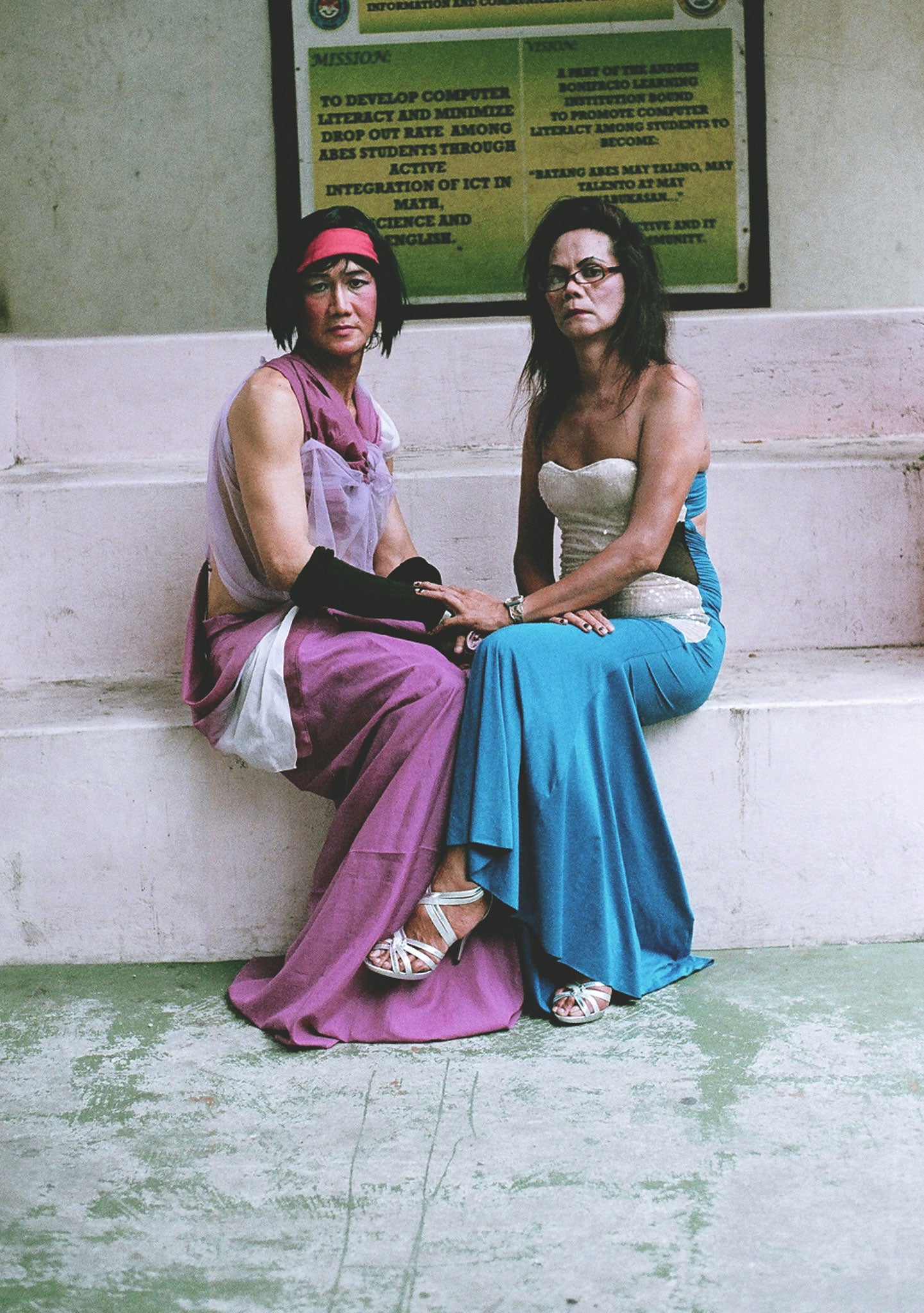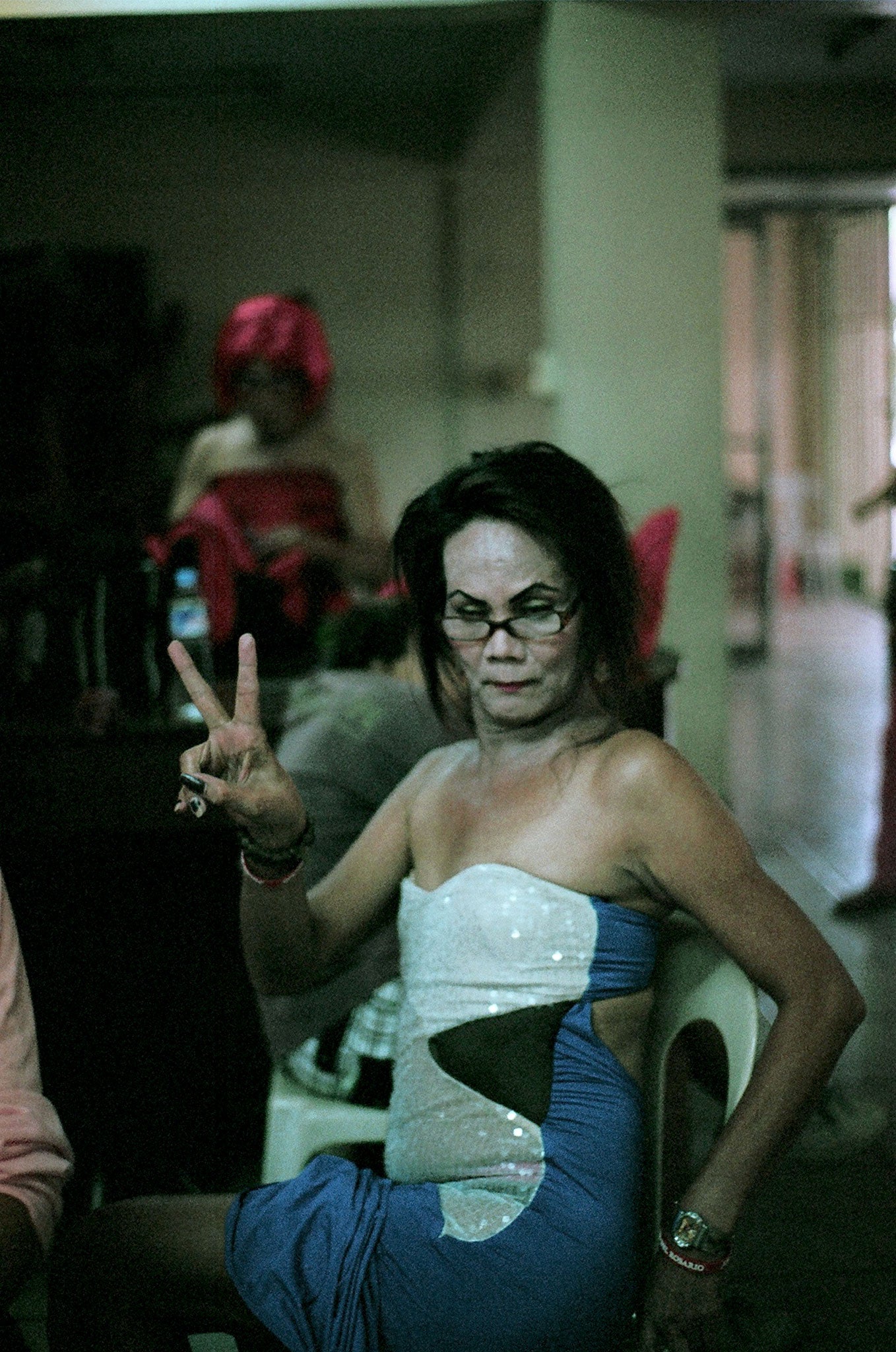Photographer captures the lost legacy of Justo Justo's Filipino Home of the Golden Gays
In the Seventies, Filipino activist Justo Justo opened a care home for elderly gay people in the city of Pasay. When he died in 2012, the home went with him. So what happened to its residents?

Your support helps us to tell the story
From reproductive rights to climate change to Big Tech, The Independent is on the ground when the story is developing. Whether it's investigating the financials of Elon Musk's pro-Trump PAC or producing our latest documentary, 'The A Word', which shines a light on the American women fighting for reproductive rights, we know how important it is to parse out the facts from the messaging.
At such a critical moment in US history, we need reporters on the ground. Your donation allows us to keep sending journalists to speak to both sides of the story.
The Independent is trusted by Americans across the entire political spectrum. And unlike many other quality news outlets, we choose not to lock Americans out of our reporting and analysis with paywalls. We believe quality journalism should be available to everyone, paid for by those who can afford it.
Your support makes all the difference.Tita go tayo sa gay bar para makapang-hada? Haha, Noël Coward. Etsos lang. Was na datung. Ooh Itich na Jombre super viola. Ako Fillet O'Fish kanya. Anik antibiotic? Ikaw ay Murriah Carey?
In 1975, Justo Justo, a Lesbian, Gay, Bisexual and Transgender (LGBT) spokesperson and columnist, founded the Home of the Golden Gays, a care facility for elderly homosexuals in the city of Pasay, the Philippines. A prominent voice in the promotion of equal rights and Aids awareness, Justo popularised the gay lingo 'Swardspeak' – a playful combination of Tagalog, Spanish and English littered with references to Mariah Carey, the playwright Noël Coward and items from the McDonald's menu. His optimistic campaign, characterised not just by this, but by his get-up too – the kiss-curl and the TV-friendly smile – attracted scores of ageing gay men to the refuge for over three decades. These included Walter J Dempsey, whose ordeal as a sex slave held by Japanese soldiers during the Second World War is retold in the Filipino film, Markova: Comfort Gay (2001).
Until Justo Justo's death in May 2012, the Home of the Golden Gays offered security, freedom of expression and a sense of community to the gay and poor elders of the Manila community, who are not subject to a real state pension scheme. Yet with the personal bond between its founder and landlord extinguished, residents were forced to disband, leaving Ramon Busa, a disciple of Justo's, to take the group's reigns.
Photographer Esther Theaker found herself working in the Philippines in 2012 and became interested in the lo-fi gay-bar scene, much less brash and explicit than she had experienced in Thailand. In April 2013, she made a return to Pasay to document the beauty pageant of the Golden Gays. Held at a local high-school, thanks to the support of its sympathetic principal, the pictures capture a culture indebted to American pop-culture, of playful one-upmanship and inner strength as members of the group, referred to as the 'Lolas', took to the stage to parade their looks.
"Watching the Lolas transform into their characters was unlike anything I had ever seen," Theaker says. "There's a professional poise and precision with which they assemble their looks. They might not have a home but they have a shared aesthetic and attitude. At the pageant itself, the Lola's sing and dance to recent pop songs. Despite the adversity they face, the atmosphere is decidedly upbeat."
These gatherings take place every few months and are the sole opportunity for the wider community of the Golden Gays to meet, with clothes and make-up supplied by donors who are invited to serve on a panel of judges.
"We have five winners, because I could only afford five crowns from the shop," the group's leader Busa tells me, laughing. "For the non-winners, I don't want them to go home with tears in their eyes, so we give them a reasonable amount – around 300 peso [approximately £4] for their efforts, because in older age, putting on make-up and wearing high heels for three hours can be difficult."
That said, the Golden Gays' oldest member, 87-year-old Mother Leone, can still walk the ramp for three solid hours. Another of the group's oldest members, seen here in a white wedding-style dress and blue eyeshadow (who wished to remain anonymous) exemplifies for Theaker the dignity and poise of the whole community. The 148 members are now divided into two tiers of 'golden girls' (aged 61 upwards) and 'silver girls' (45 upwards), the former of which passes down knowledge in a mentoring capacity which Busa hopes will ensure the Golden Gays' legacy is carried forward into future generations.

"All of the Golden Gays take strength from wearing these beautiful clothes and accessories," he explains. "It's a strength that helps them to survive. We are the only group to have lasted this long and remained this healthy. Disease does not hold us back, despite being given no attention by the government. We have survived all the worst odds in life. We are survivors and we achieve this through awareness. Our Facebook group and website is updated with news concerning health and LGBT rights, which is a great resource for our members, and means that we are now a leader for other groups."
Tenacity on the part of Busa following the loss of the Golden Gays' permanent facility has led to him harnessing modern technology and widening the group's reach to deliver important LGBT messaging to a bigger audience.
"It is important that people can see that we are still going," Busa explains. "We don't want to be cut off from the rest of the world, and for that we need to remain healthy and engaged. We are always bringing in new members for the sake of ensuring that our legacy lives on. We want to inspire young gay people to look after themselves – to show them that they can live and be beautiful far into old age."
Yet the necessity to replace the permanent facility and offer the elderly LGBT community in Pasay a place of shelter must not be downplayed. While the Philippines, as a Catholic and relatively matriarchal society compared to many neighbouring East Asian states, is relatively progressive in its attitude towards the gay community, it is by no means free of prejudice. Busa tells me that it is common for health attendants to ridicule the gay community who rely on their services, and for the LGBT community to encounter verbal and physical abuse in public bathrooms.
After they were forced to leave the permanent facility, many members of the Golden Gays returned to the streets of Pasay, where they sleep in doorways of malls or abandoned tower blocks.
"They find their own place under the Moon," Busa tells me. "Unless it is raining, then they must take refuge under a bridge."
Theaker explains that, in lieu of a physical headquarters, the distinctive look of the Golden Gays is tantamount to keeping their community together – but it is small compensation. Without the requisite financial support, the bright flame of the Golden Gays could soon be reduced to little more than an ember.
Join our commenting forum
Join thought-provoking conversations, follow other Independent readers and see their replies
Comments